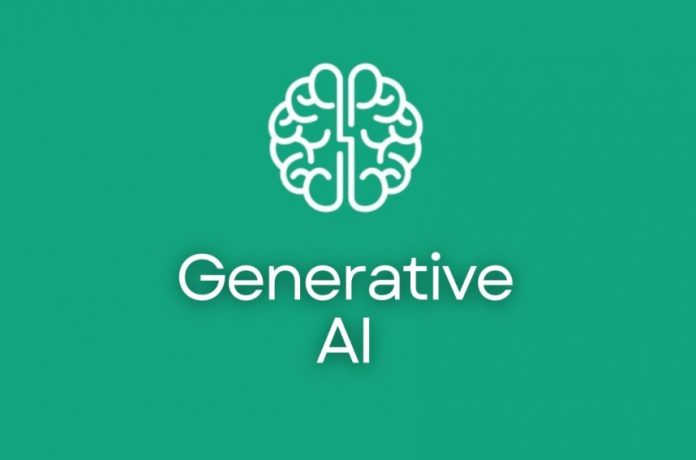
The rise of Generative AI has created a paradigm shift in the tech industry. Companies across the globe are investing significant resources into building applications using large language models (LLMs) and multimodal technologies. As a result, the demand for skilled Generative AI engineers is skyrocketing. But what exactly do companies look for when hiring for such roles?
In this article, we will explore the skillsets that are in high demand and the different job roles within the Generative AI landscape. Whether you’re an aspiring engineer or a seasoned professional aiming to pivot into this dynamic field, this overview will guide you through the critical competencies required to excel in the Generative AI job market.
1. Understanding Generative AI Models and Technologies
Generative AI’s core is the ability to work with powerful models like GPT (Generative Pre-trained Transformer), Gemini, and open-source LLMs such as Lama and MRR. Companies are explicitly looking for professionals with hands-on experience with these models and who know how to deploy and fine-tune them for various business applications.
Key Competencies:
- LLM Proficiency: Knowledge of large language models and their applications is fundamental. Engineers need to understand how these models work, their limitations, and how to leverage them for tasks such as text generation, image generation, and multimodal use cases.
- Fine-tuning Models: Fine-tuning open-source and closed-source models, such as GPT and Gemini, and open models like Lama, is essential. This process tailors models to specific business requirements.
- Multimodal AI: Familiarity with multimodal models that work across text, images, and other forms of data is becoming increasingly important as businesses seek to create versatile AI solutions.
2. Cloud Platforms and Deployment
The deployment of Generative AI models requires powerful cloud platforms. AWS, Google Cloud, and Microsoft Azure are the primary platforms for building, training, and deploying models. Engineers must be well-versed in these environments to manage cloud infrastructure and perform inferencing tasks at scale.
Key Competencies:
- Cloud Expertise: Experience with AWS, Azure, and Google Cloud, including their AI and ML services, is crucial. Engineers should know how to scale models efficiently on these platforms.
- Cloud-Native Architectures: Engineers are expected to design cloud-native architectures that allow for the smooth integration of Generative AI models into business applications.
3. Working with Frameworks and Libraries
Several frameworks and libraries are essential for developing Generative AI applications. LangChain, Hugging Face, and Lama Index are key tools that organizations require proficiency in. These libraries facilitate seamless interaction with models, fine-tuning, and building complex AI systems.
Key Competencies:
- LangChain and Hugging Face are two of the most commonly used frameworks in the Generative AI ecosystem. Engineers must know how to integrate these tools into their projects to enhance models’ capabilities.
- Model Integration: Understanding how to integrate traditional AI modules with Generative AI is also crucial, especially when working in full-stack or senior engineering roles.
4. Data Engineering and Vector Databases
Data engineering is closely tied to Generative AI roles. Engineers must work with structured and unstructured data to train and fine-tune models. Additionally, knowledge of vector databases, which store embeddings from LLMs and other AI models, is becoming a must-have skill.
Key Competencies:
- Vector Databases: Familiarity with vector databases, such as Pinecone or FAISS, helps in efficient data retrieval, especially in applications like RAG (retrieval-augmented generation).
- Data Engineering Skills: The ability to work with large datasets and optimize them for model training is crucial. Skills in handling data preprocessing, augmentation, and pipeline building are vital.
5. Collaboration and Soft Skills
While technical prowess is essential, collaboration is just as important in the world of Generative AI. Engineers often work alongside product managers, data scientists, and software developers to develop AI applications. Effective communication and teamwork are key to creating successful AI solutions.
Key Competencies:
- Collaboration with Cross-functional Teams: Engineers will often collaborate with data scientists, engineers, product managers, and even HR teams (in the case of HR Tech applications) to develop end-to-end solutions.
- Communication Skills: It is highly valued to be able to explain complex AI concepts to non-technical stakeholders and contribute to product strategy.
6. Other In-Demand Skills
- Python: Python remains the primary language for Generative AI development. Proficiency in Python is a must-have, as it is widely used in AI libraries and frameworks.
- DevOps and MLOps: MLOps and DevOps experience is essential for those looking to manage the deployment and lifecycle of AI models. This includes working with tools for continuous integration, delivery, and model monitoring.
- AI Ethics and Responsibility: Companies are increasingly focusing on AI’s ethical implications. Familiarity with responsible AI principles, such as fairness, transparency, and privacy, is becoming a differentiator for many roles.
7. Entry-Level vs. Senior Roles
While the skills discussed above are in demand worldwide, there are differences between entry-level and senior roles in Generative AI.
- Entry-Level Roles: For freshers or those transitioning into AI, companies expect foundational knowledge in machine learning, deep learning, and Python. Experience with cloud platforms and basic Generative AI frameworks can give candidates a competitive edge.
- Senior Roles: For senior roles, such as technical leads or AI architects, in-depth experience in fine-tuning models, deploying at scale, and managing teams is required. Leadership abilities to guide product strategy and cross-team collaboration are highly sought after.
Conclusion
The job market for Generative AI engineers is flourishing, with companies investing heavily in AI technologies to drive business outcomes. To succeed in this field, candidates must be equipped with a blend of technical skills, ranging from a deep understanding of Generative AI models and frameworks to expertise in cloud platforms and data engineering. Soft skills like collaboration and communication are equally essential for long-term success.
As the field continues to evolve, staying updated with the latest advancements and continuously developing hands-on experience with real-world applications will be key to standing out in this competitive market.


















